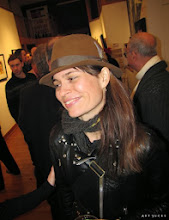One thing I am thankful for is that my mom exposed me to such things as millet, buckwheat, kefir & inka as I was growing up. If I had come from a white bread/ TV dinner household I would be at a complete loss in terms of how to feed myself from the only “pood”, or store in town. I know that beans need to be soaked & I know that there is a 2/1 ratio of water for most whole grains. My difficulty is the packaging- not understanding Estonian nor Russian- it becomes a challenge to figure out what is butter & what is margarine. You start to notice things like whether or not there is a picture of a cow on the label or not. Makes me think that some good ol’ universal labeling for food could be useful- but on the other hand having different labeling & languages on packaging is what makes shopping in different countries interesting. It gets a little confusing though when products don’t even come in the same type of containers- like “piim” or milk comes in a bag & caviar in a toothpaste type tube. The other thing I noticed is the shortage of produce, which I guess is the result of people actually having their own vegetable gardens at home- & apparently more than the average suburban American garden, which is generally more of a hobby for bored house wives or husbands.
As I placed my carefully chosen basket of goods on the counter, shyly gesturing that I had brought my own bag, but that I did not speak a word of Estonian I noticed that the two guys behind me had their baskets full of beer. I remembered my first night in Mooste & how the founders of MoKS had notified me that there was quite a demand of alcohol at the local store, that actually alcohol was kind of a problem. It is not so rare that small towns have this issue, of how to pass the time when the workday is over when there is so little to do. I have started collecting the wrapping of all of the food I consume, as a way of learning the words for basic food items & possibly the material for a later art project in contrast to a log that Marcel kept of his prison meals- describing what was on his tray for a week in the chow hall & how it tasted & or appeared.
Estonian word of the day: "Nagemist" meaning goodbye or see you around. Bonus: "Olu" meaning Beer.
Saturday, May 3, 2008
Subscribe to:
Post Comments (Atom)

1 comment:
and on that note, i am thankful for you anna, for exposing me to your genius with staples in the kitchen, really it was such a pleasure living and learning from you. even if i did eat way too much apple crisp.
Post a Comment